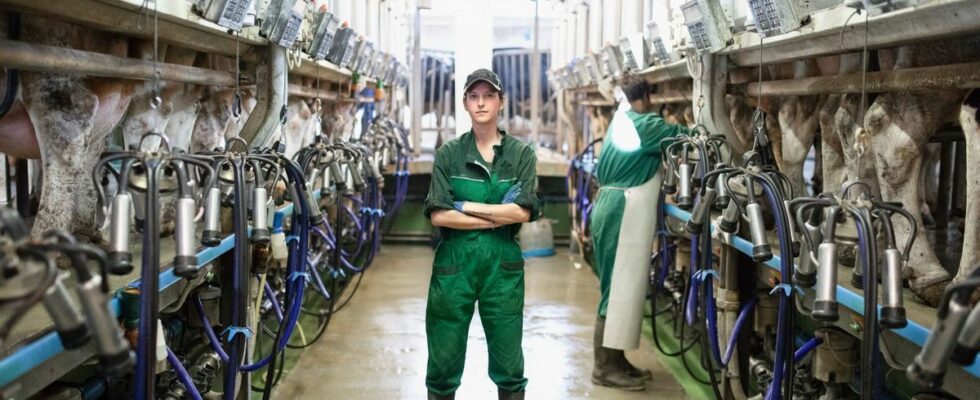Published on
Updated
Reading 2 min.
Denmark is to become the first country in the world to tax livestock burps and farts, a unique measure that aims to bring the Scandinavian country, which presents itself as one of the most virtuous in terms of climate, closer to its goal of carbon neutrality by 2045.
From 2030, methane emissions, the second most abundant greenhouse gas in the atmosphere, caused by the flatulence of Danish cattle and pigs, will be taxed at 300 crowns (40.2 euros) per tonne of CO2 equivalent.
This amount will increase to 750 crowns (around 100 euros) five years later, in 2035, according to the terms of an agreement concluded at the end of June between the government, part of the opposition and representatives of breeders, industry and the trade union world.
The text still needs to be approved by Parliament, which will examine it after the summer.
For Christian Fromberg, agriculture specialist at Greenpeace, the text “gives hope, in a context where many countries are backtracking on their climate action.”
“Although the carbon tax should have been higher and implemented earlier, it remains an important step“, he rejoices to the AFP.
In this regard, the head of Greenpeace deplores at the same time a “huge opportunity wasted” to allow “Danish agriculture to take a new direction“while its practices remain very intensive and it releases a lot of nitrogen, responsible for the deoxygenation of the water.
Without oxygen, marine flora and fauna disappear.
“Sad day”
For the Danish Association for Sustainable Agriculture, however, the agreement is “useless”. It is “a sad day for agriculture“, she complains in a press release.
“As a farmer, I feel uncomfortable because we are participating in an uncertain experiment” that could threaten “the security of the food supply“, believes its president Peter Kiaer, recalling New Zealand’s abandonment of a similar proposal in the face of the breeders’ revolt.
To soften the bill for Danish farmers, the plan proposes a 60% tax deduction. The real cost to farmers is expected to be 120 kroner (16 euros) per tonne from 2030, and 300 kroner five years later.
However, projections from the Ministry of Economy estimate that, as a result of the agreement, up to 2,000 jobs could disappear in the sector by 2035.
The revenue generated by the tax will be reinvested in the ecological transition of the agricultural industry. More than 60% of the country’s surface area is devoted to agriculture.
In addition, the fallowing of 140,000 hectares should increase carbon storage in the soil, to reduce the concentration of greenhouse gases in the atmosphere.
“In Denmark we have the myth of being a pioneer in ecology“, deplores Mr. Fromberg.”It is very difficult to say that this agreement is historic. It is part of the ongoing intensification of Danish agriculture over the last 70 years. And the agreement provides an incentive for Danish agriculture to remain the most intensive meat-producing country in the world.“.
Globally, Denmark is one of the largest exporters of pork, which accounts for almost half of the country’s agricultural exports according to the Danish Agriculture and Food Council.
